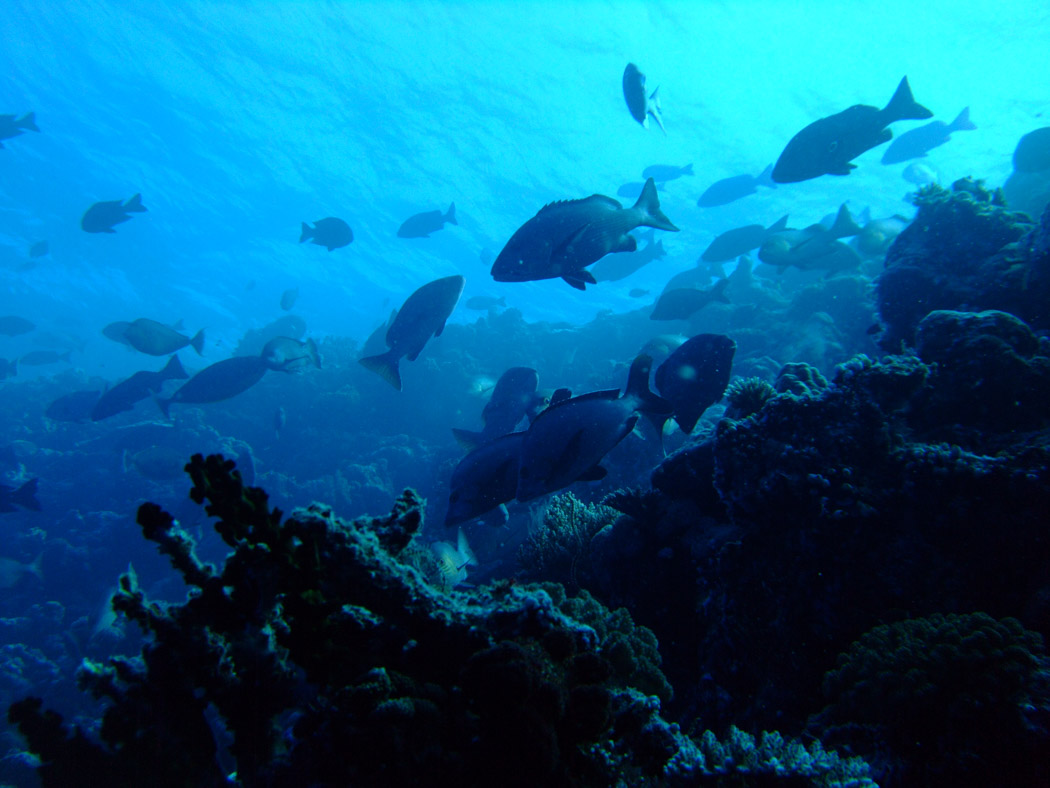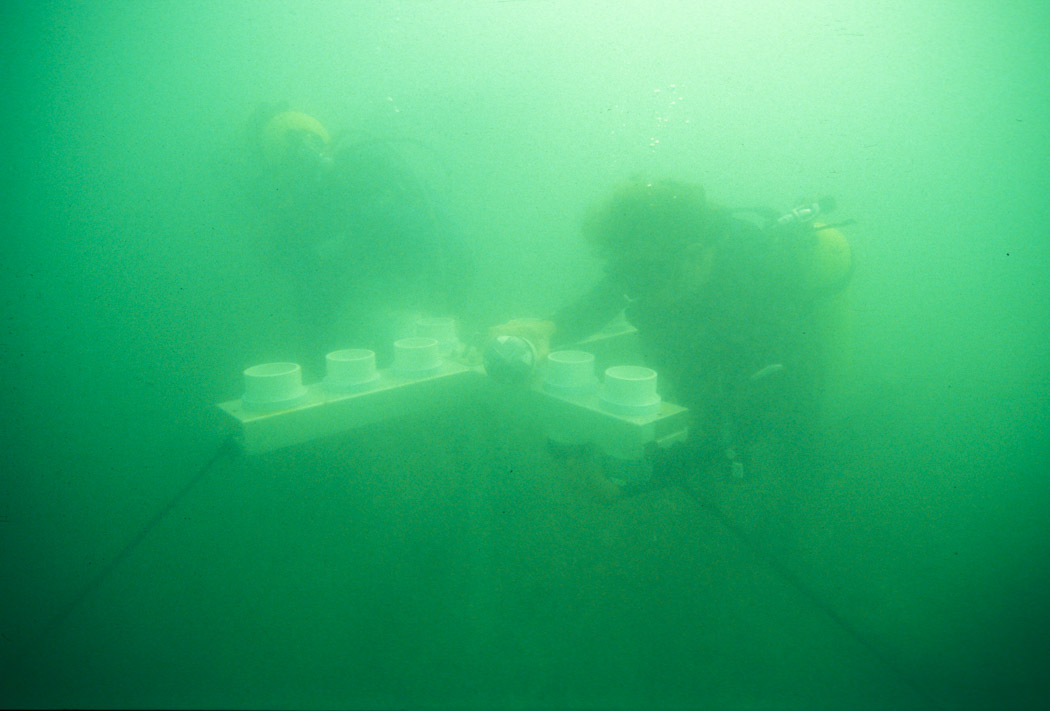The Great Barrier Reef (GBR) is a sensitive ecosystem, and it’s facing a number of environmental challenges. One of those issues is water clarity: murky waters are bad news for both coral reefs and seagrass beds, as the loss of light penetrating the water reduces the ability of corals and seagrass to photosynthesise and generate energy. Worse still, murky water is rich in nutrients. Nutrients not only boost the growth of seaweed, which can takeover coral reefs, but they can also lead to blooms of microalgae. There’s strong evidence linking such microalgae to outbreaks of the coral-eating crown-of-thorns starfish, a plague that can consume vast areas of coral reef.
Figure 1: Clear waters of the Great Barrier Reef. Image: K.Fabricius/AIMS
So what causes declines in water clarity, where does it happen and how long does it last?
A group of scientists, led by Dr Katharina Fabricius from the Australian Institute of Marine Science, has published seminal research on water quality, covering the entire Great Barrier Reef for the last 11 years. They found some unexpected results: after a river flooded the adjacent region experienced up to a 50% decline in water clarity, which would last for six to eight months following the event. River floods had usually been considered a factor that only affects nearshore reefs and only for a short period of time. However, the new study found that even outer-shelf reefs were affected in some regions, again with poor water clarity persisting for many months after the rivers had stopped flowing.
The team also found that declines in water clarity were greatest in those regions with high levels of agricultural activity, namely the Wet Tropics, Whitsundays, Burdekin and Fitzroy regions. More concerning still, they found that water clarity has continuously declined in southern inshore zones over the past 11 years, suggesting that impacts from river flood events are outpacing recovery times.
Figure 2: Divers working on inshore reefs sediment trap. Image: K.Fabricius/AIMS
The research did provide some positive news; it showed that with each year of reduced river sediment and nutrient loads noticeable improvements in water clarity were observed across much of the GBR. Likewise, the research supports that implementation of best practice land management strategies would improve GBR water clarity within years, rather than decades.
The paper, Changes in water clarity in response to river discharges on the Great Barrier Reef continental shelf: 2002–2013 is freely available online in Science Direct: http://www.sciencedirect.com/science/article/pii/S0272771416300634



